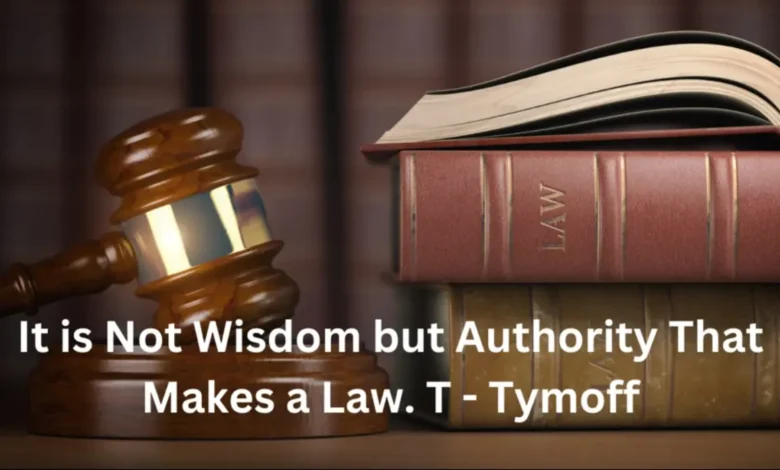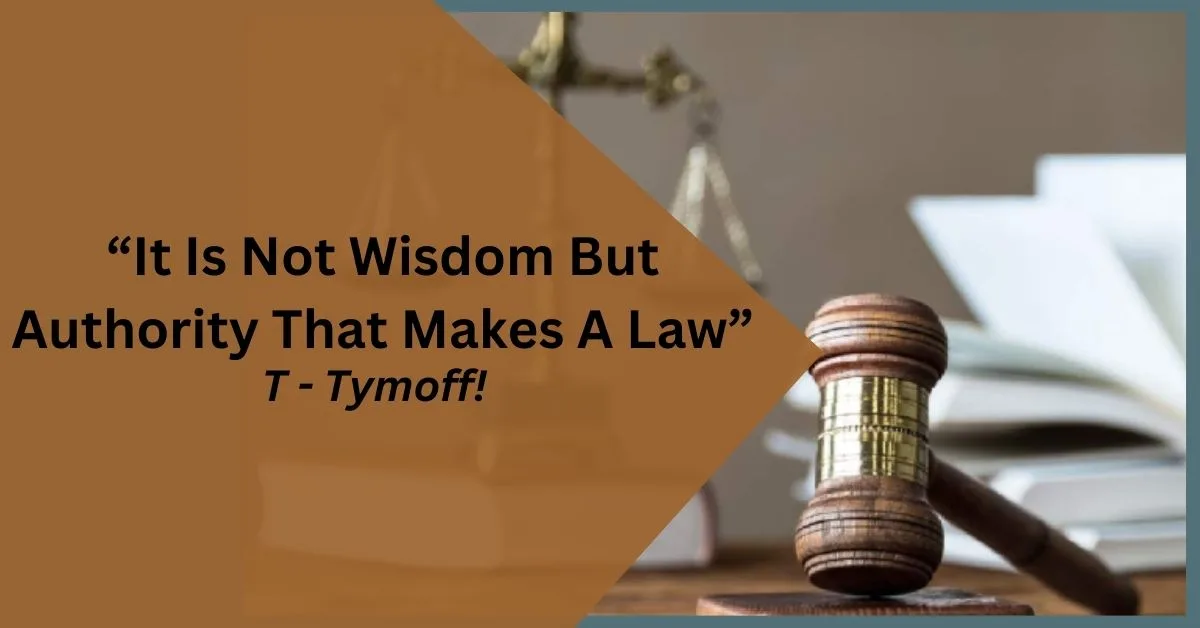
Introduction
The quote, “It is not wisdom but authority that makes a law”, by Tymoff, highlights a crucial distinction between the two concepts. Wisdom and authority are often used interchangeably but have distinct meanings and implications. This article will delve into the significance of this quote, exploring how authority has been used to shape laws and regulations while wisdom has often taken a backseat. We will examine the consequences of prioritizing authority over wisdom and discuss balancing the two.
The Power of Authority
Authority has long been a driving force in shaping laws and regulations. Those in positions of power, such as governments and institutions, have used their authority to create and enforce laws that often serve their interests. This has led to laws not always based on wisdom but on the whims of those in power. Authority has been used to suppress dissenting voices and maintain the status quo rather than encouraging open discussion and debate.
In many cases, authority has been used to justify laws that are not in the best interests of society. For example, laws that discriminate against marginalized groups or perpetuate inequality have been enacted and enforced through the exercise of authority. These laws may not be wise or just, but they are implemented due to the authority of those who created them.
The Limitations of Authority

While authority has its place in maintaining order and stability, it has limitations. Authority can be used to suppress wisdom and stifle progress. When prioritizing authority over wisdom, laws and regulations can become outdated and ineffective.
This can lead to a situation where laws are not adapted to changing circumstances, and society is held back by outdated thinking.
Moreover, authority can be used to silence dissenting voices and suppress new ideas. Those who challenge the status quo are often marginalized or punished when authority is prioritized over wisdom. This can lead to a lack of innovation and progress, as new ideas cannot flourish.
The Importance of Wisdom
Wisdom, conversely, is the ability to think critically and make decisions based on experience and knowledge. Wisdom is not limited to those in positions of power but can be found in people from all walks of life. Wisdom is essential in creating laws and regulations that are fair, just, and effective.
Wisdom allows us to see the long-term consequences of our actions and make decisions that benefit society. Wisdom is unafraid to challenge the status quo and seek new solutions to old problems. When wisdom is prioritized, laws and regulations are more likely to be based on reason and evidence rather than authority and power.
Striking a Balance
So, how can we strike a balance between authority and wisdom? First and foremost, we need to recognize the importance of both. Authority has its place in maintaining order and stability, but knowledge is essential in creating laws and regulations that are fair and just.
We must create a system where authority is not the only factor in shaping laws and regulations. We need to encourage open discussion and debate and allow marginalized groups’ voices to be heard. We must prioritize wisdom and create a culture of nurturing and valuing new ideas.
Conclusion
In conclusion, the quote, “It is not wisdom but authority that makes a law”, by Tymoff, highlights the importance of recognizing the distinction between authority and wisdom. While authority has its place in shaping laws and regulations, wisdom is essential in creating a fair and just society. We need to strike a balance between the two and create a system where authority is not the only factor in shaping laws and regulations. We can make a truly just and equitable society by prioritizing wisdom and encouraging open discussion and debate.
you may also read
Learn To Sit Back And Observe. Not Everything Need – Tymoff
| it is not wisdom but authority that makes a law. t – tymoff |
it is not wisdom but authority that makes a law. t – tymoff
it is not wisdom but authority that makes a law. t – tymoff
it is not wisdom but authority that makes a law. t – tymoff
it is not wisdom but authority that makes a law. t – tymoff
it is not wisdom but authority that makes a law. t – tymoff
it is not wisdom but authority that makes a law. t – tymoff



